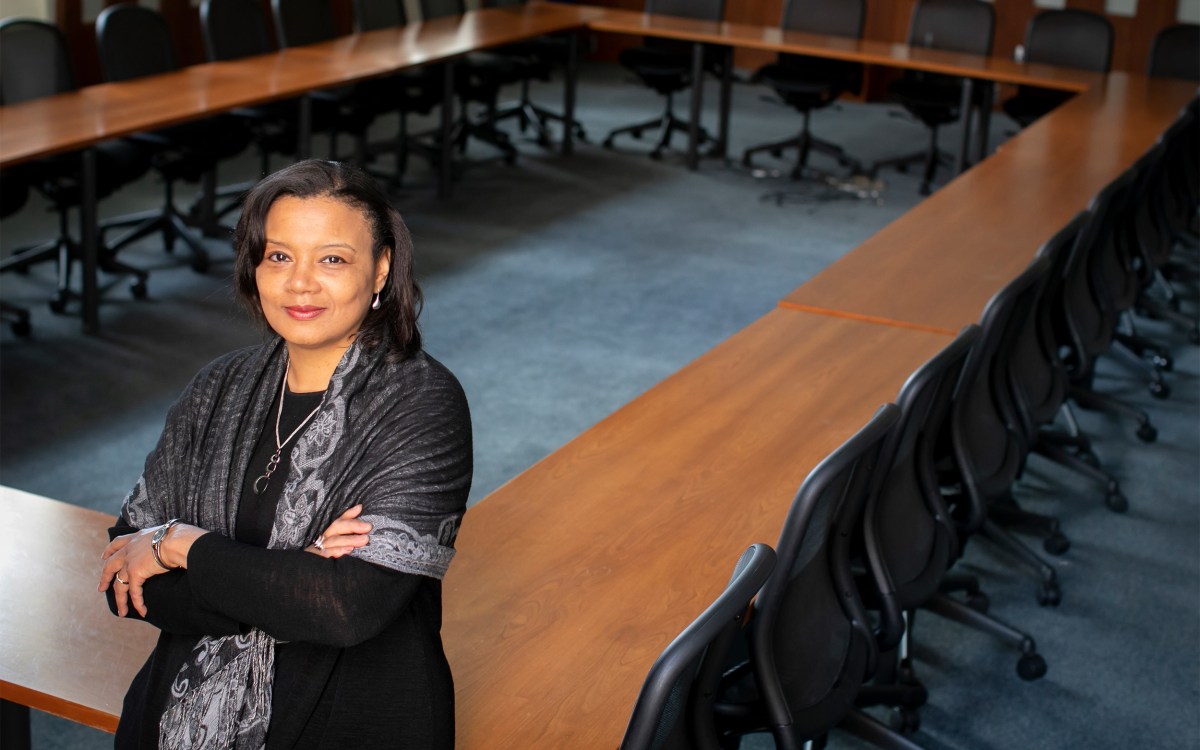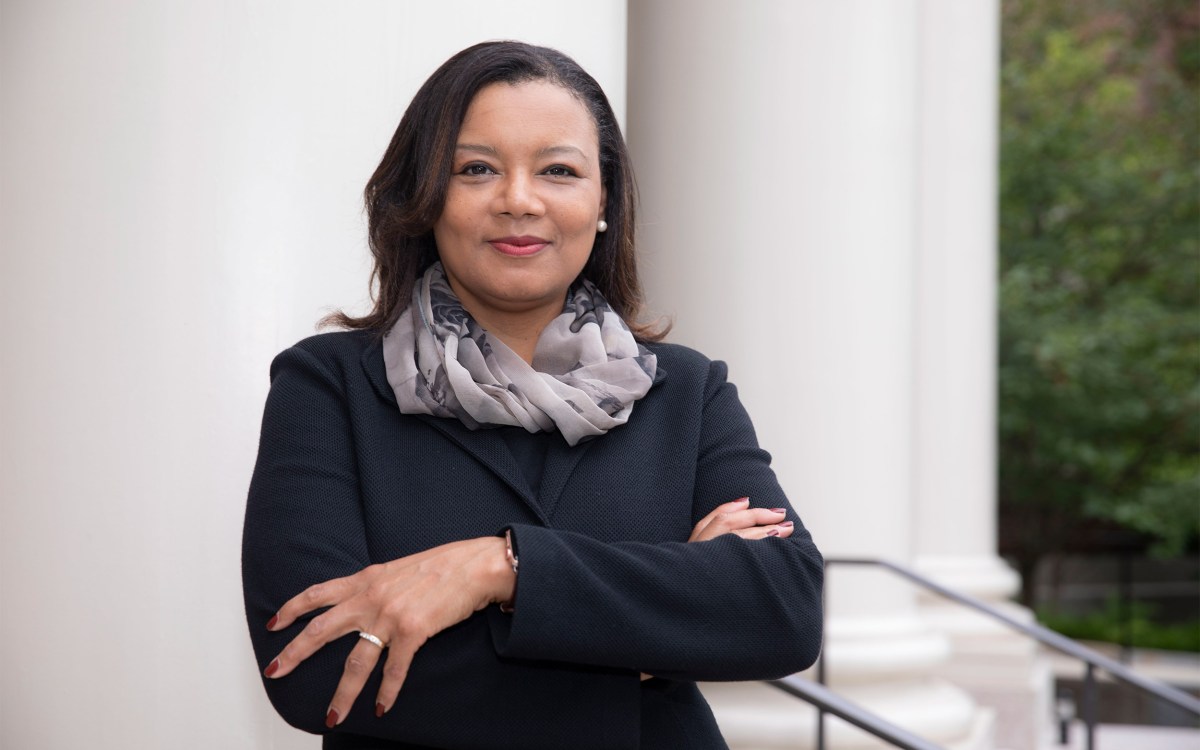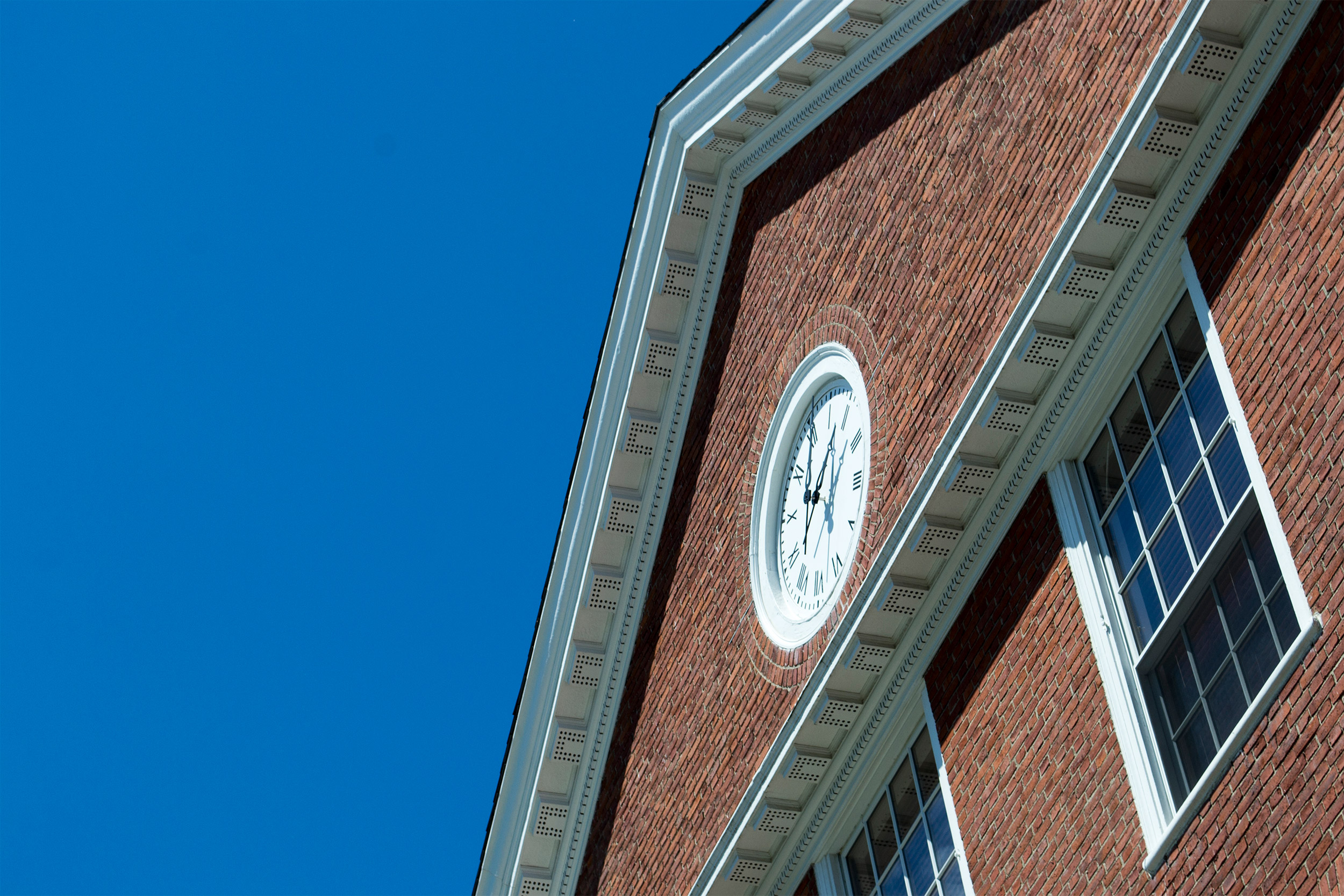
Byerly Hall in Radcliffe Yard.
Photo by Thomas Earle
A look at Radcliffe past and present
Current and former deans discuss institute’s history, achievements, aspirations
Tomiko Brown-Nagin and Drew Faust, the current and former deans of the Radcliffe Institute for Advanced Study, discussed the history and future of the celebrated center, an intellectual incubator of ideas for scholars and artists from a range of backgrounds, on its 20th anniversary.
The hourlong discussion Friday was the featured event of Radcliffe Day, an annual celebration of alumni and of achievement that typically unfolds under a large tent on Radcliffe’s campus, but was moved online due to the coronavirus pandemic.
“As we bear witness to the devastating impacts of COVID-19, we at the institute have an opportunity and a responsibility to bring together our most innovative thinkers and to pursue a more equitable and sustainable public health and social infrastructure,” said Brown-Nagin of the cultural inequities the crisis has highlighted. “This crucial work can happen, and it is happening at Radcliffe because the institute is nimble enough to pursue its mission in new ways and focused enough to advance old ideas despite the challenges all around us.”
During the talk Brown-Nagin asked Faust, Harvard president emerita and the institute’s founding dean, to take listeners back to its earliest days. Then-University President Neil Rudenstine persuaded Faust to take the job in 2000, she said, enticing her with what he envisioned for the new institute and its role at Harvard and in the wider world.
Rudenstine made clear that this would be a chance to “build something new within a structure of tradition and support,” said Faust, “a kind of safety net of intellectual excellence and experience. And also I felt that Harvard needed to get women’s issues right … I thought if we could get that right in this leading institution of higher education, it would have such reverberations beyond the institute.”
Faust said she also was drawn to the multidisciplinary nature of the center, with its mix of artists, historians, authors, and scientists in a single community, and to the institute’s embrace of inclusiveness and diversity. Both themes would become central to her tenure as Harvard’s 28th president. “There were aspects of the mission of Radcliffe that influenced my approach to Harvard very deeply,” said Faust, the Arthur Kingsley Porter University Professor.
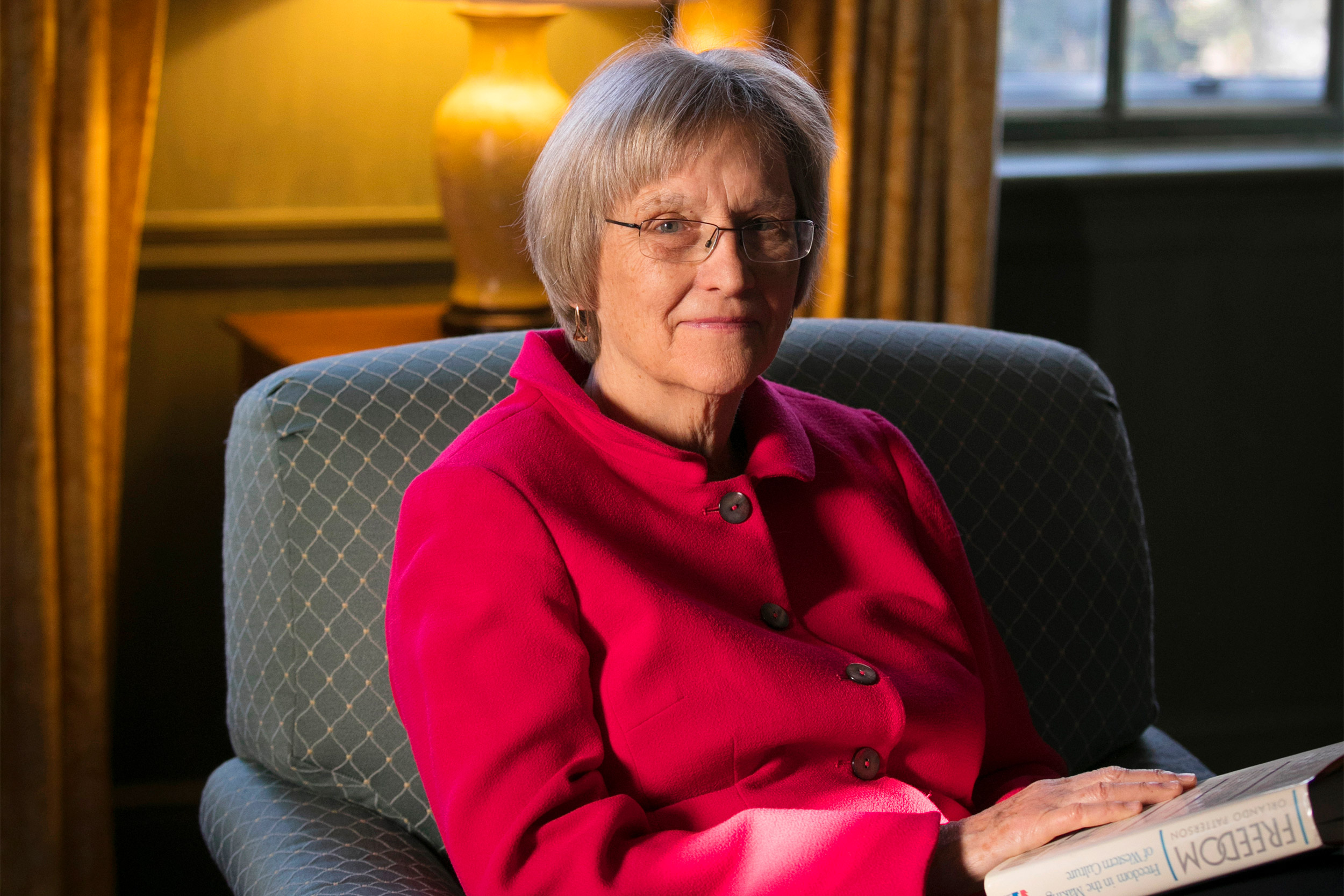
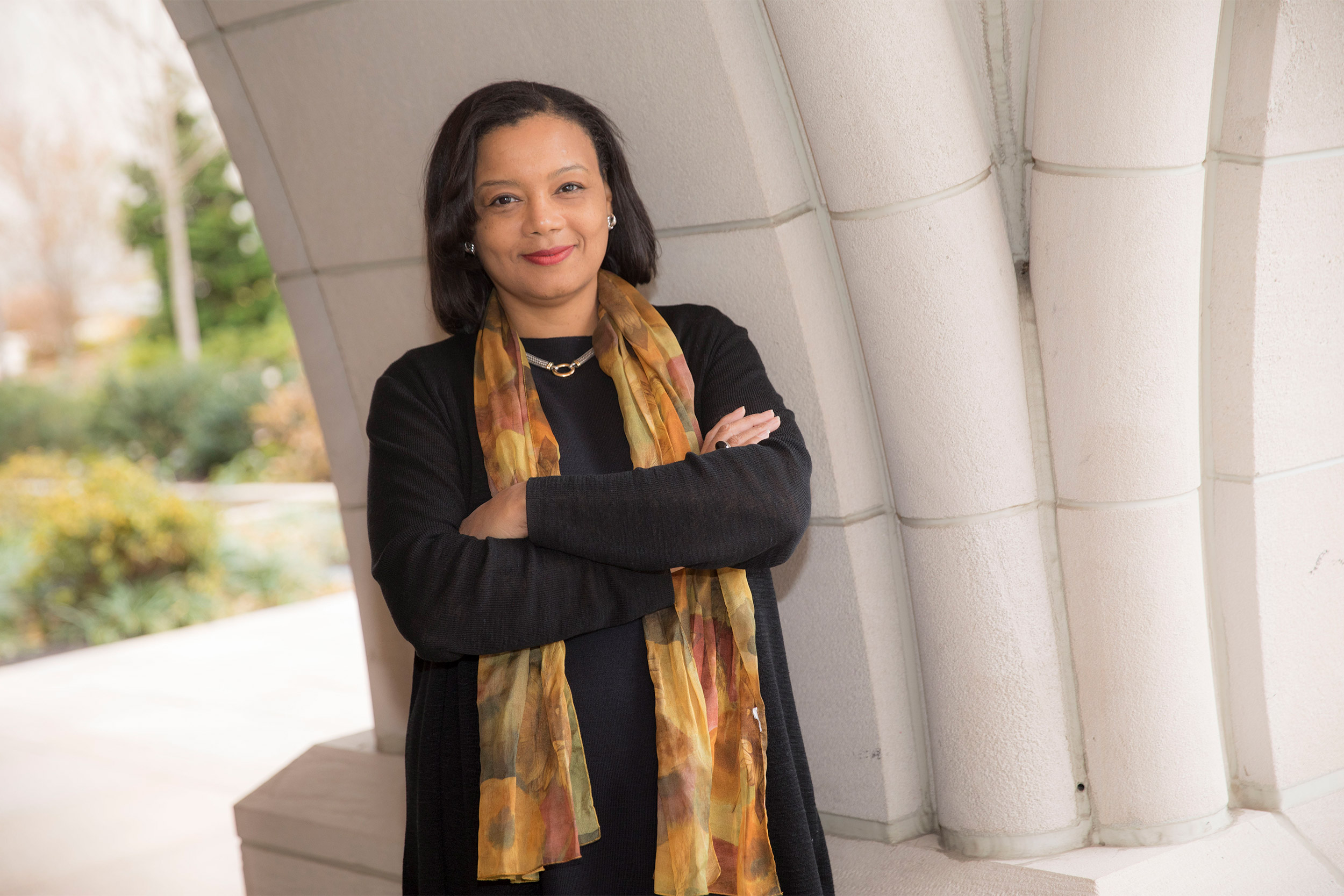
Drew Faust and Tomiko Brown-Nagin
File photos by Stephanie Mitchell, Kris Snibbe/Harvard Staff Photographers
The institute’s roots can be traced back to Radcliffe College President Mary Ingraham Bunting, who in 1960 helped create a postgraduate study and research center for women called the Radcliffe Institute for Independent Study (later named the Mary Ingraham Bunting Institute in her honor).
When Radcliffe College and Harvard University merged in 1999, the new Radcliffe Institute was officially established, with Faust named as its founding dean. Today, the center’s signature fellowship program hosts more than 50 scholars, women and men drawn from across the humanities, sciences, social sciences, and the arts who convene at Radcliffe to do groundbreaking research and other work.
As she prepared to take on the role of dean, Brown-Nagin said she closely reviewed the institute’s founding documents, its mission, and its ties to Radcliffe College. The research informed a strategic planning process that resulted in Radcliffe Engaged, a new set of priorities aimed at involving scholars, students, and members of the Harvard community and beyond in tackling some of the world’s most pressing problems.
“That plan really leans into Radcliffe College’s history of producing brilliant, civically engaged women,” said Brown-Nagin, the Daniel P.S. Paul Professor of Constitutional Law. “It seeks to amplify scholarship, including from the professions like medicine, public health, law, and education, that informs pressing social problems … and it aspires to engage the broader community more and more and to engage increasing numbers of Harvard students.”
Last summer Radcliffe hosted Boston Public School students for a week of programming focused on socio-emotional learning, personal narrative, and the concepts of justice and injustice. The institute is currently planning an Emerging Leaders pilot program that will bring local high school students together with Harvard undergraduate mentors around a curriculum focused on ways to bring about social and community change, said Nagin.
The conversation also touched on a topic about which both scholars have a keen interest: a University-wide initiative that Harvard President Larry Bacow announced in November to further examine Harvard’s ties to slavery and its legacy, an effort that builds on work done during Faust’s tenure in office.
“[Radcliffe Engaged] really leans into Radcliffe College’s history of producing brilliant, civically engaged women.”
Tomiko Brown-Nagin
Bacow selected Brown-Nagin to oversee a committee that will steer the project. The dean and Radcliffe “will also anchor a range of programmatic and scholarly efforts within this new initiative” that will be supported by $5 million in initial funding from the University, said Bacow.
“I was very pleased to see that Radcliffe was going to take on the leadership of this inquiry,” said Faust.
“We are going to approach this in a very Radcliffe way,” said Brown-Nagin of her plan to create conferences and programming around related issues, engage students in research connected to Harvard’s ties to slavery, “integrate knowledge of that relationship into the curriculum,” and engage the broader community.
“It is such an important initiative and work that we undertake,” said Brown-Nagin.
Brown-Nagin recalled this conversation in an email on Sunday to the Radcliffe staff in the wake of the rage, violence, and protests this weekend nationwide over the killing of George Floyd by Minneapolis police officers. In it she reminded that at the core of the institute’s work is the belief that intellectual exploration and civic engagement — around issues such as the legacy of slavery and the inequities laid bare by COVID-19 and mass incarceration — are key to social change.
“In this dark hour,’’ she wrote, “we must take heart in the ideal that the power to change lies within us and our institutions.”
Original plans for Friday’s event called for the Radcliffe Medal, the institute’s highest honor, to be awarded to Melinda Gates “for her remarkable impact around the world, for putting women and girls at the center of the Bill & Melinda Gates Foundation’s work, and for her urgent and ambitious commitment to the unfinished business of empowering women here in the United States,” Brown-Nagin said earlier this year. Gates will be honored instead, she said, at Radcliffe Day 2021.



